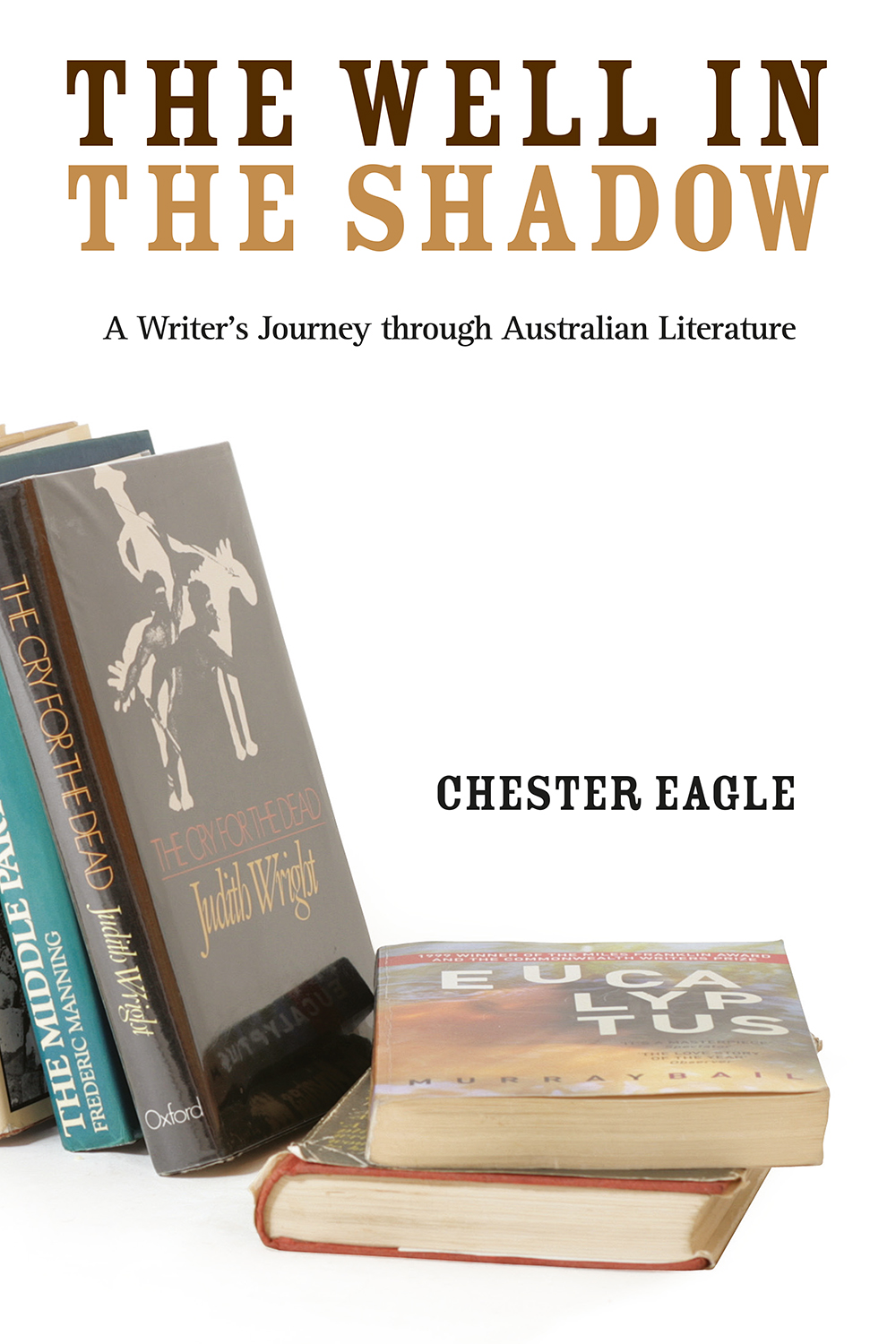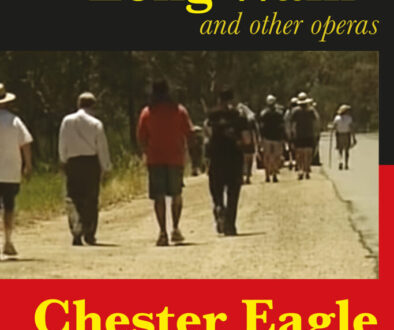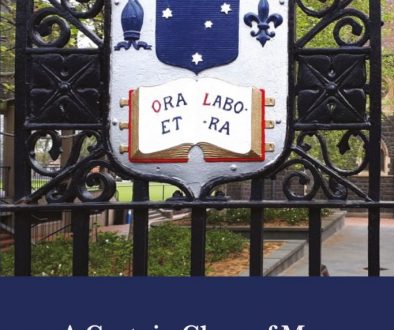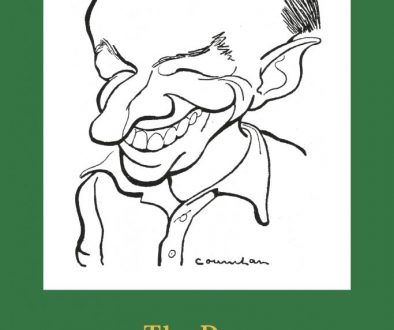The Well in the Shadow

Award-winning Australian author Chester Eagle journeys through Australian literature offering engaging essays on the works of writers including Miles Franklin, Patrick White, George Johnston, Beverley Farmer, Helen Garner and Alexis Wright. As Eagle says in his introduction: ‘The essays are not introductory. I consider them rather as a sharing of one writer’s reflections with the thoughts of readers who are looking for something new to add to their thinking. What the fellow-writer has to offer is the insight that comes from having also been at the heart of the risky business of creating and imagining. Writers can see what other writers are up to because they face the same problems and use the same tricks.’
These entertaining essays are linked by the essential notion of what it means to be a writer in Australia, and as such offer up valuable insights into our literature and country.
Written by Chester Eagle
Cover by Squid Ink Design
Print published 2010 by Transit Lounge
1,500 copies printed
(with assistance from the Australia Council)
Circa 115,000 words
Electronic publication by Trojan Press (2008)
The writing of this book:
What did I think I was doing when I started these essays?
Looking back through my notes, I was surprised to find that the very first piece of paper was headed ‘For the Chinese reader’. I have a number of Chinese friends who are English-language scholars, so that at the outset I had them and their students in mind as my audience. No such heading appeared on later bits of paper, so the idea was short-lived. I quickly took a different approach, centred on the question I posed to myself in the Introduction to the book and many times during my work on it, namely what could and could not a practising writer usefully say about the work of his or her predecessors and peers? My simple and limited answer to that question sits at the beginning of the book, so I’ll say no more here.
How do I feel about these essays now that the first series is finished and a second series begun?
Perhaps the first thing I should say is that my selection of writers and then of their books is entirely personal. Friends have said to me ‘Are you going to write about X?” or ‘You can’t possibly leave out Z’, but, prevaricate as I may, I know I won’t write about a fellow writer from a sense of duty, or a feeling that Y is too good to be left out. I’m true enough to myself as a writer to write only about those writers and books that I feel I understand well enough to say something apposite about them. Nobody’s interests are served by a poor discussion of their work. This means, quite simply, that I am led, in my choices, by my own enthusiasms, and inevitably they must be limited and partial. I don’t feel any responsibility for canon-creating. It’s not something I have any wish to do, nor do I possess the skills even if I felt so inclined. If I feel an urge to talk about someone’s writing, they’re in.
But in what order? Is there any significance in the presentation of the writers, certain ones early on, others later? My answer is that there is no conscious significance in the order of the essays, but I must suspect that the ordering principle that’s always working in a writer’s mind is at work here. Fairly early on in the project I showed half a dozen essays to a friend, who observed that there appeared to be no underlying theme to my approach; that is to say, the essays sat beside each other without interacting. I think he felt this was a weakness in my project, but I was pleased. The further I went, however, the more I sensed that the essays were talking to each other, even if what they were saying was almost, or possibly entirely, beyond my hearing. When, for instance, at the suggestion of publisher Barry Scott, I took up Alexis Wright’s Carpentaria, I realized that my preoccupation with the interaction of black and white civilizations in my homeland had become a continuing thread in the essays, one that had first shown itself in my piece on Judith Wright’s two books, The Generations of Men and The Cry from the Dead, and then in books by Sally Morgan and Katherine Susannah Prichard. A theme, a matter of major concern, was quietly moving itself from the shadows of the unconscious to the more visible, approachable parts of my mind.
Similarly, with the essays finished in the sequel, or second collection, I’m aware that there has been a shift from my two-civilisations approach to a newer concern with the nature of what it is that writers contribute to the cultures they live in, and how their creations contribute to the imaginative life of a country – a dimension that is at least as important as any other, and perhaps more so. If we don’t know how it is we use our minds to imagine the world we have next to no self-knowledge, and without that, where is our ability to manage, to control, ourselves?
With those remarks in mind, let us move to the naming of the book. I had written the essays under the loose heading of ‘Ozlit’, but that would hardly do for a title, so I began turning pages of the books I’d dealt with for suitable phrases or catchy expressions. I found only one that I liked, and I used it: ‘The Well in the Shadow’ is the sub-title of, and perhaps a translation of, the name Coonardoo. Australian literature has a depth, I thought, and a generosity that’s for the most part overlooked. There are few enough of us who speak for it, or even get the chance to do so. I, possessing a website of my own, could do as I pleased and as I felt I ought, so I would give my fellow writers a home under the roof I’d had created by friends with skills beyond my possession.
It seems to me that if writers want to be listened to as they should be, they must appropriate for themselves the means by which reputations are made and public recognition is directed towards them – if it is. To do this is well-nigh impossible in a media-dominated world, but my site is not controlled in the way that I am complaining about, so I thought that making public my essays on Australian writers and their books could be seen, by myself at least, as an assertion of writers’ considerable contribution to the national psyche, and indeed of their independence. I’m pleased to say that website statistics about the things visitors look at when visiting the site, and then download from it, suggests that some good has been done by creating a space for considering Australian writers and their books. I hope to take this project some way further yet.



